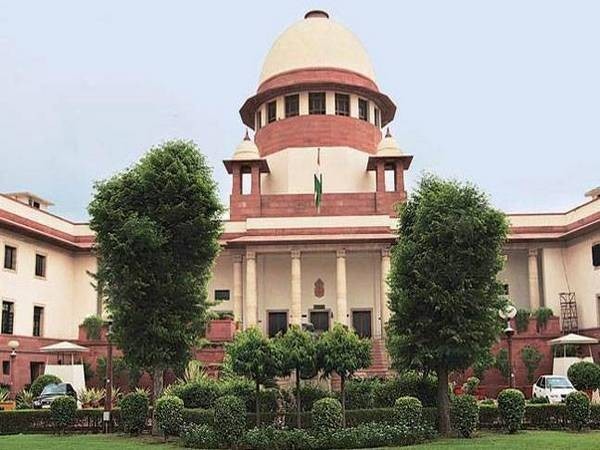New Delhi [India], April 17 (ANI): The Centre on Thursday assured the Supreme Court that key provisions of the Waqf (Amendment) Act, 2025, including the inclusion of non-Muslims in the Central Waqf Council and Waqf Boards and provisions on de-notifying Waqf properties, will not be given effect to for some time.
A bench of Chief Justice of India Sanjiv Khanna and Justices PV Sanjay Kumar and KV Viswanathan recorded the assurance given by Solicitor General Tushar Mehta, appearing for the Centre, to the apex court that, until the next date of hearing, Waqf properties, including ‘Waqf by user’, which are declared by notification or registered, will not be de-notified.
Furthermore, the Solicitor General assured the court that no appointments will be made to the Waqf Council or Waqf boards.
The Centre also sought additional time to file a response to petitions challenging the constitutional validity of the Waqf (Amendment) Act, 2025. The bench granted a week’s time for the Centre to submit a response, and petitioners will be allowed to file their rejoinder within five days thereafter.
The matter has been posted for hearing in the week commencing May 5. “The hearing on the next date will only be for directions and interim orders, if any,” the bench added.
During the hearing, Solicitor General Mehta urged the bench not to stay the provisions of the Act, saying that the law was enacted after considering many representations and suggestions.
“Government is answerable to the people. The government received lakhs of representations. Villages are taken as Waqf, and many lands are claimed as Waqf. It is a considered piece of legislation,” Mehta said.
He added that staying the Act would be a “harsh step” and requested a week to file a preliminary reply along with relevant documents before the court. “This is not a matter that can be considered lightly,” he said.
In response, Chief Justice Khanna noted that the bench had already identified some positive aspects of the law but expressed concern over changing the status quo drastically, which could affect the rights of the parties involved.
“Mr. Mehta, we have a particular situation. We pointed out certain infirmities. We also said there are some positive things. But we don’t want the situation prevailing today to change so drastically that it affects the rights of the parties,” the CJI stated. “There are provisions such as five years’ practice of Islam. We are not saying that. Yes, you are right. There is a thumb rule that courts don’t ordinarily stay legislation. But there is another thumb rule: when the petition is pending before the court, the situation prevailing should not change so that the rights of persons are not affected.”
The bench further ruled that no appointments to the Waqf Council or Boards could take place.
Solicitor General Mehta assured the bench that if any state makes an appointment to these bodies until the court decides the case, it will be treated as void.
The bench also segregated cases filed by Hindu parties challenging earlier Waqf laws of 1995 and 2013 and changed the cause title of the case to “In Re: Waqf Amendment Act.”
The Supreme Court had previously indicated that it might stay certain key provisions of the Act, such as the inclusion of non-Muslims in the Central Waqf Council and Waqf Boards, the powers of Collectors to decide disputes over Waqf properties, and provisions related to de-notifying properties declared as Waqf.
During the proceedings, CJI Khanna had questioned how properties declared as Waqf long ago could be suddenly reclassified, highlighting concerns about the government attempting to “rewrite history” through amendments to the law.
“The government cannot rewrite history through these changes brought in by the amendments to the Waqf law,” said the CJI, referring to the scope under the new Act to de-notify properties declared as Waqf hundreds of years ago.
The bench had also raised concerns about the potential impact of the new Act on properties not registered or documented, such as Waqf-by-user properties, which account for a significant number of Waqf properties in India.
Several petitions have been filed in the Supreme Court challenging the Act, arguing that it is discriminatory towards the Muslim community and violates their fundamental rights. The petitions include challenges from various individuals, MPs, and organisations such as the All India Majlis-e-Ittehadul Muslimeen (AIMIM), the All India Muslim Personal Law Board (AIMPLB), and others.
The Act was passed by Parliament after heated debates in both Houses, and President Droupadi Murmu gave her assent to the Waqf (Amendment) Bill, 2025, on April 5.
Defending the Act, BJP-led state governments in Rajasthan, Haryana, Maharashtra, Madhya Pradesh, Assam, Uttarakhand, and Chhattisgarh filed impleadment applications. Additionally, advocates and organisations, including those protecting the rights of tribals and Hindus, also submitted applications in support of the Act.
The Supreme Court’s next hearing on this matter will focus on directions and interim orders, with a final resolution expected to follow. (ANI)
Disclaimer: This story is auto-generated from a syndicated feed of ANI; only the image & headline may have been reworked by News Services Division of World News Network Inc Ltd and Palghar News and Pune News and World News
HINDI, MARATHI, GUJARATI, TAMIL, TELUGU, BENGALI, KANNADA, ORIYA, PUNJABI, URDU, MALAYALAM
For more details and packages













